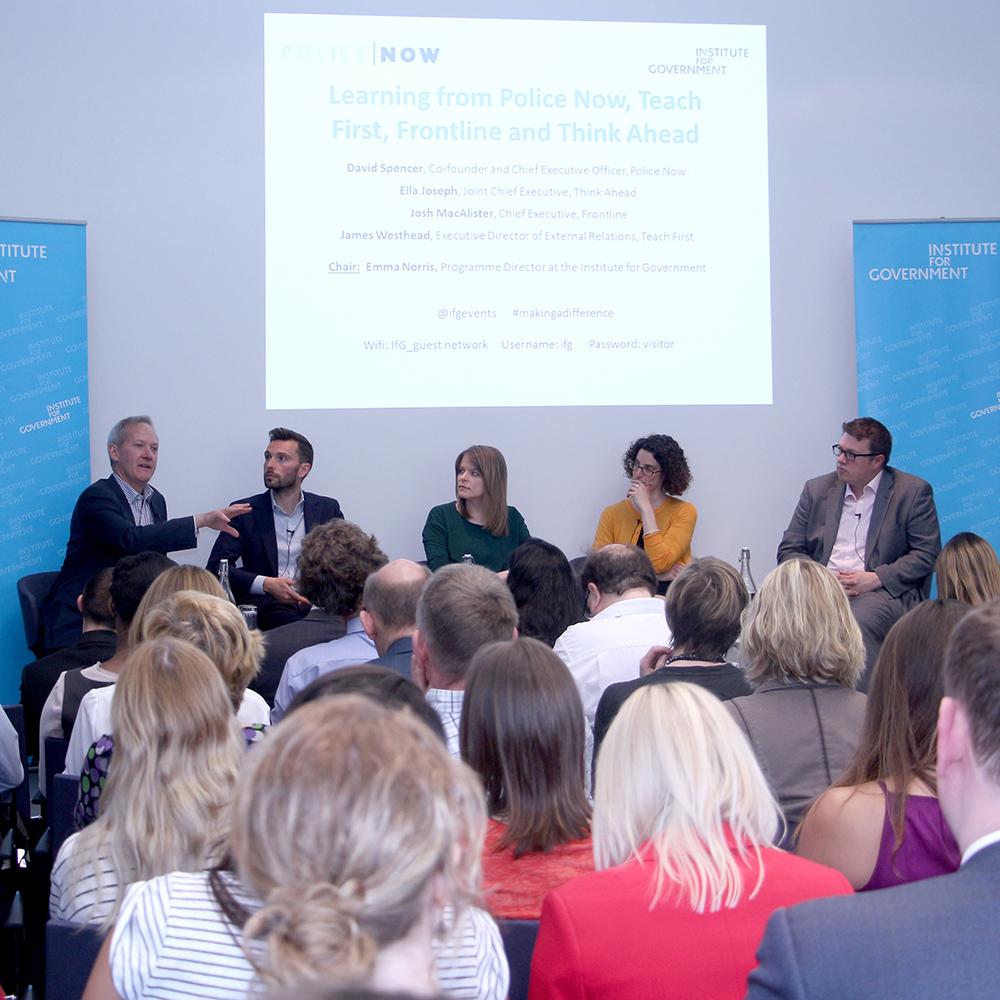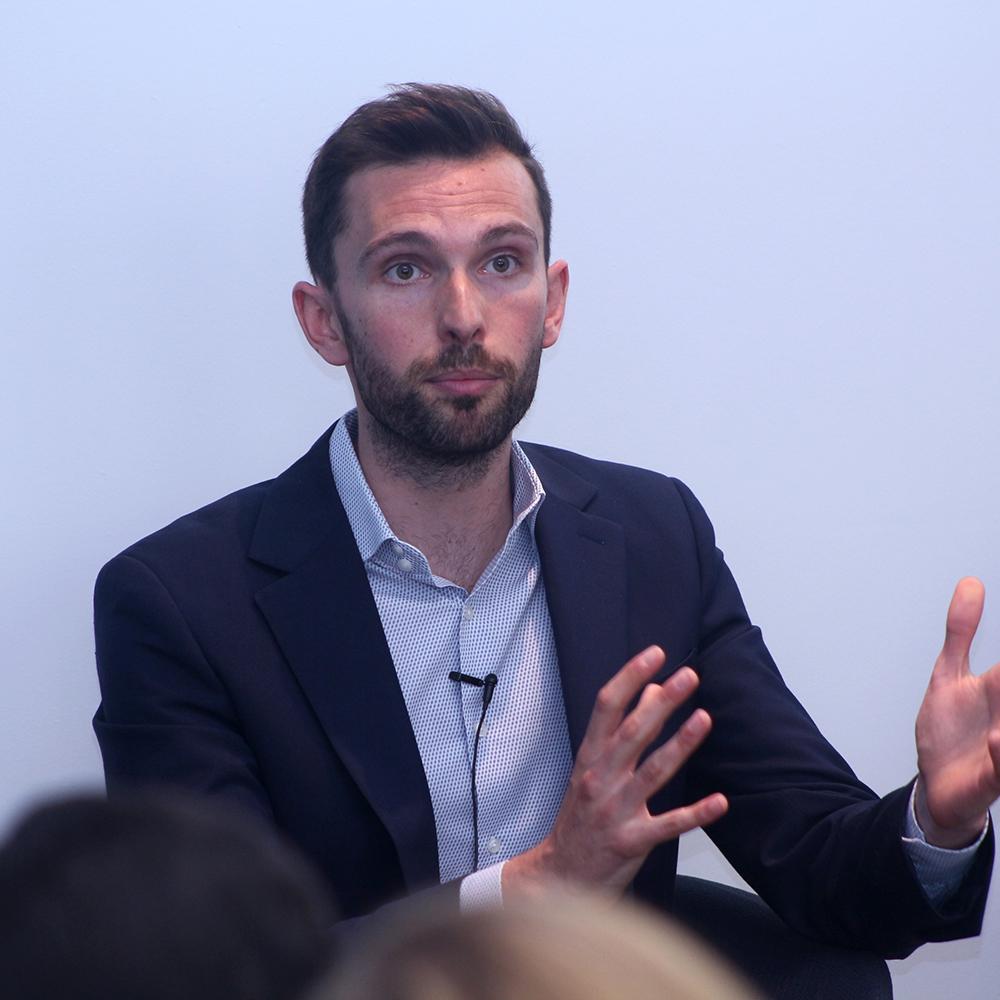The role of graduate programmes in transforming public services
As previous Institute for Government publications have outlined, this is an era of public service reform and public services now need to deliver better user outcomes with fewer resources. Graduate fast-track schemes are one way public services have sought to deliver this objective, with a number of public services emulating the Teach First model – an intensive graduate training programme which seeks to combat educational disadvantage through encouraging and enabling more high-quality graduates to enter teaching. But how much impact can this model generate? And what are its associated challenges? To find out more the Institute convened an event bringing together leaders from four public service fast-track schemes: Teach First (teaching), Police Now (policing), Frontline (children's social care) and Think Ahead (mental health services); from which we drew the following insights:

